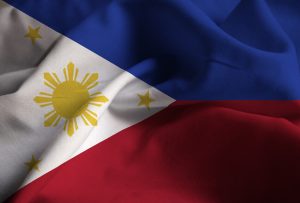The Philippine Supreme Court yesterday upheld the legality of most of an anti-terrorism law passed by President Rodrigo Duterte’s administration last year, which opponents claim – with some reason – could be used to clamp down on political dissent.
The Anti-Terrorism Act of 2020 allows the detention of suspects for up to 24 days without charge, compared with just 36 hours in the country’s Revised Penal Code. It also empowers a government anti-terrorism council to designate suspects or groups as suspected terrorists, which allows them to be subject to arrest and surveillance.
According to the Associated Press, the law was intended to replace a 2007 anti-terror law called the Human Security Act that was rarely used, largely because law enforcers feared a provision that imposed a fine of 500,000 pesos ($10,000) for each day they wrongfully detained a terrorism suspect.
Since the new law was signed by President Rodrigo Duterte in July of last year, critics have expressed fears that the law would be used against political activists and dissenters, and filed 37 petitions asking the court to declare the law unconstitutional. But while the Supreme Court struck down two provisions, the court declared in a statement that all the other parts of the law which came under legal challenge were “not unconstitutional.”
The Supreme Court struck out a line in Section 4(e), which states that public protests, dissent, work stoppages, and other exercises of political rights would not be considered acts of terrorism as long as these “are not intended to cause death or serious physical harm … or to create a serious risk to public safety.” The judges said the qualifying conditions were “overbroad and violative of freedom of expression.”
The court also declared unconstitutional Section 25 of the law, which allows an anti-terrorism council appointed by the president to adopt requests by other entities, including international organizations, to designate individuals or groups as terrorists.
Despite these small wins, government critics have expressed alarm about the likely use of the law, and a number of political groups planned protests against the law to mark International Human Rights Day today.
Activist Renato Reyes Jr. said on Twitter that the striking down of these provisions was a “partial victory” for petitioners, but that “the dangerous provisions of the terror law remain and can still be abused.” He added, “Other dangerous provisions on designations, proscription, warrantless arrests, and prolonged detention remain and must be challenged.”
Since its passage last year, President Duterte has defended the law, telling people, “do not be afraid if you are not a terrorist.” But critics of his administration fear that the crime of terrorism could be used to anathematize and outlaw a spectrum of legitimate dissent, from street protests and labor strikes to critical reporting.
It’s not an unreasonable fear, given the vilification that many left-wing activists and critics of the Duterte administration continue to face in the course of their daily activities. A particularly insidious tactic is “red-tagging,” a practice whereby people have been publicly labelled as communists or terrorists, either by officials or online trolls, which often exposes them to vigilante violence.
So far, the anti-terror council has designated the Communist Party of the Philippines, New People’s Army, National Democratic Front of the Philippines, and 19 supposed members of the CPP as terrorists.
Rights defenders and civil libertarians are especially worried about provisions outlawing the incitement to terrorism, which they say could be used to criminalized certain forms of speech. The Supreme Court also upheld Section 29 of the law, which gives the anti-terror council the power to order the arrest of suspected terrorists and detain them for as long as 24 days.
By granting the government “excessive and unchecked powers,” the human rights group Amnesty International said that the law “remains deeply flawed and open to abuse by government authorities.”

































